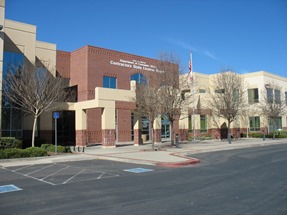New Laws - 1995
Summary of law changes for the 1994-1995 Legislative Session
This is a summary of the more significant legislation that the Contractors State License Board has followed during the 1994 legislative session. All of the bills in the summary have been signed into law (chaptered), and become effective on January 1, 1995, unless noted. Copies of chaptered bills are available at www.leginfo.ca.gov or by calling (916) 445-2323.
AB 2636 by Assembly Member Richter exempts real estate licensees from the licensing and regulation provisions of the CSLB when acting within the scope of their real estate license. It also specifies that the exemption does not authorize a real estate licensee or a property manager to act in the capacity of a contractor unless licensed by the CSLB.
AB 3001 by Assembly Member Conroy requires home improvement contracts on property with four or fewer units to contain a disclosure and notice of any citation, license suspension, or license revocation within the last four years resulting from a violation by the Contractor, or any complaint or legal action relating to the contractor's conduct which resulted in an unfavorable judgment against the contractor. The bill imposes the following penalties: $1,000 for the first violation; $2,500 for the second violation; $5,000 and a one year license suspension for the third violation; and license revocation for the fourth violation.
AB 3269 by Assembly Member Barbara Friedman provides that any security interest taken by a contractor to secure any payment of the performance of any act or conduct relating to home improvement that occurs on or after January 1, 1995, is unenforceable if the person soliciting the act or contract was not a duly registered salesperson or was not exempt from registration at the time the homeowner signs the home improvement contract solicited by the salesperson. The bill revises the warnings to consumers (effective October 1, 1995) which appear in retail installment contracts.
AB 3302 by Assembly Member Speier requires all applicants for licenses or renewals to provide his/her social security number or federal employer identification number. It also changes the statute of limitations for filing a complaint against a licensed contractor and makes several other substantial changes to the Contractors License Law.
AB 3365 by Assembly Member McDonald prohibits the award of a contract on a state project involving federal funds unless the state agency has verified that the contractor has a valid license in the appropriate classification for the work performed.
ABX 36 by Assembly Member Katz says that upon the proclamation of a state of emergency and for 180 days following the declaration, it shall be a misdemeanor violation upon any person, contractor, business or other entity to sell or offer to sell any consumer food items, goods or services used for emergency cleanup, emergency supplies or medical supplies, home heating oil, building materials, housing, transportation, freight and storage services or gasoline or other motor fuels for a price that exceeds by 10% the price charged by that person for those goods or services immediately prior to the proclamation of a state of emergency. The requirement would be waived if the person can prove an increase in price was directly attributable to additional costs imposed by the supplier of the goods or for labor or materials used to provide the services. The bill requires CSLB to discipline the license of any licensee convicted of the violation.
AB 1490 by Senator Johnston establishes in statute the Joint Enforcement Strike Force on the Underground Economy (which was created pursuant to Governor's Executive Order W-66-93) under the Director of the Employment Development Department, which includes representatives of the Employment Development Department, the Department of Consumer Affairs, the Department of Industrial Relations and the Office of Criminal Justice Planning.
The strike force is charged with (1) facilitating and encouraging the development and sharing of information by the participating agencies necessary to combat the underground economy, (2) improving the coordination of activities among the participating agencies, (3) developing methods to pool, focus and target the enforcement resources of the participating agencies in order to deter tax evasion and maximize recoveries from blatant tax evaders and violators of cash-pay reporting laws and (4) reducing enforcement costs whenever possible by eliminating duplicative audits and investigations.
This bill requires the strike force to report to the Governor and Legislature annually (commencing February 1, 1995) regarding its activities. The strike force would sunset on January 1, 2000 (unless extended by later enacted statute).
SB 2101 by Senator McCorquodale provides that a disciplinary action taken by another state, any agency of the federal government or another country that is substantially related to the practice regulated by a license issued by an licensing board within the Department of Consumer Affairs, may be grounds for disciplinary action by the state licensing agency.
A legislative summary of all the bills relating to the Contractors Board and signed into law in 1994 is available by writing to the Contractors State License Board, Legislative Unit, PO Box 26000, Sacramento, California, 95826. Up to 100 copies of the bills may be obtained from the legislative Bill Room at the Capitol.



